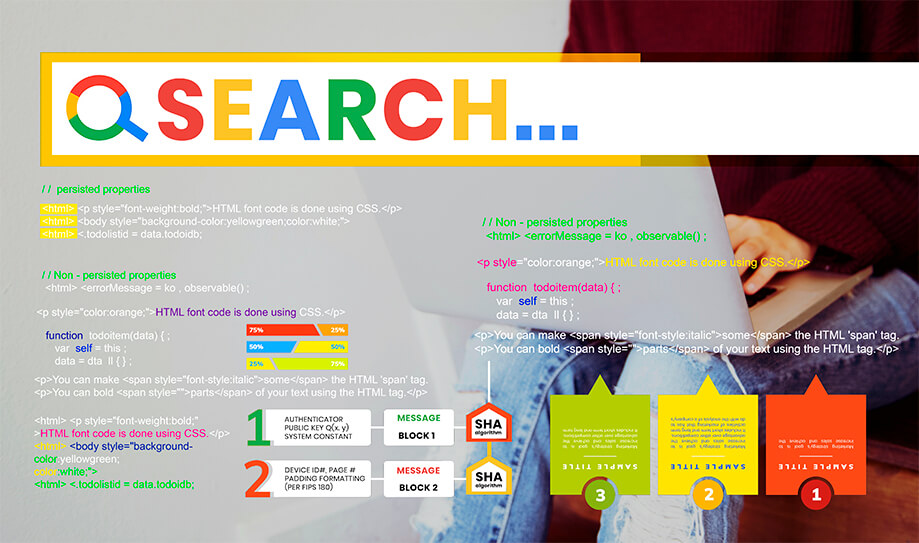Do you ever think about how many Google searches you make in a day? Do you wonder how the results you see are ranked? And, once they are, do they stay like this forever?
It should come as no surprise that Google wants to show you the most relevant answers to your questions. To do that, it keeps adjusting the way it values website content. These adjustments are called Google Algorithm Updates.
It is all so dynamic.
No matter if you have a website or are thinking of having one made —
Yes, they affect you, too.
In this game of uncertainty, one thing is certain — you need to keep track of any changes Google makes to its algorithm if you want to be at the top of search results.
What Is the Google Algorithm
In the language of computers, the goal of algorithms is to help in completing specific, often repetitive tasks. For example, you can program your computer to randomly display a number between 1 and 1000 every day without the number of the current date. The idea is for this task to have a beginning and an end.
It is the same with Google.
The task consists of you typing your query, and it ends with the engine displaying the results based on your search.
You’re probably wondering now, “But how does Google decide which results to show me, and in what order?”
It follows an algorithm.
Possibly something like this, but much more complicated.
Of course, it is more complex than the example with the random numbers, but it functions on the same principle.
Although the company doesn’t make its complete algorithm public, there are a couple of elements that surely impact the ability of a web page to appear in search results. Those are:
- Do you have the keyword in the title of your page, the header tags, and the meta description?
- How many naturally-occurring, organic links you have to your page?
- Is your website mobile-friendly (how it performs on smaller screens like those of smartphones and tablets)?
- What is the speed with which your webpage loads on a PC or a smartphone?
The presence of those elements on your page signal to the algorithm that you are indeed offering relevant information to this search query and, therefore, deserve to be displayed among the top results.
When Do Changes Occur?
There is no set time or date for changes. They simply happen all the time. Last year alone, Google reported an astonishing number of 3,234 updates. That means an average of 9 updates took place within a single day, every day. Of course, we are not talking about major changes. These are typically small tweaks and clearing of issues to provide a constantly improving search experience.
However,
Every now and then (2-3 times a year), Google rolls out what is known as a core update. Those are significant changes to their systems and algorithms, and they have more significant implications for website owners.
For example, there were four core updates in 2019:
- March Core Update — March 12, 2019
- June Core Update — June 3, 2019
- September Core Update — September 24, 2019
- November Local Search Update — November 25, 2019
So far, there has been one core update in 2020, the so-called January 2020 Google core update. More details about it are yet to follow.
The good news with those is that Google gives heads up well in advance. For example, they notified about The Speed Update of 2018 six months before they rolled it out.
The bad news is that they don’t tell you how to prepare for what’s to come. Their guidance can be vague and mean nothing to the inexperienced person.
Why Are Google Updates Necessary
According to Google, their mission is to “present relevant and authoritative content to searchers.” They do that by constantly updating the way they rank relevant content. Even though their algorithm learns from searchers’ activity, it is far from able to account for all the elements of their frequently changing behavior.
There are short-lived trends; new generations that look for content in a completely different way; new forms of content emerging; and many other intangible factors that influence how people look for and value information online.
When you add those to the mix, it is easy to see you can no longer rely on the algorithm alone to help you stay relevant.
Adjustments are therefore necessary. Bear in mind, those are in no way, a way for Google to punish some website owners and reward others. It is all about relevant, quality content getting the spotlight it deserves.
What Are the Consequences
Every Google algorithm update causes shifts in the way webpages are ranked. However, it is the core updates that bring about the greatest changes. Let’s look at an example:
Back in 2018, when the infamous Medic update rolled out, it was the majority of YMYL (Your Money, Your Life) websites that took the hit. Those are pages that refer to travel, gambling, finance, food and drink, e-commerce, and other similar industries.
Many pages saw a significant drop in placement because the update focused on “rewarding” pages that had a high load speed, mobile-first indexing (mobile friendly), and quality, authoritative content.
In other words, those who suffered, lost not one or two positions in their ranking, as many sunk to the hardly-ever-visited 3rd, 4th, and n-th page.
And that is the result of a single update. Imagine what can happen if you fail to recover from the second one in a row?
Every update comes with its own set of unknown and unwritten rules, and it helps to have an agency to back your SEO.
How to Recover from Them
If you are a solopreneur or doing the SEO of your website yourself, it might be difficult to prepare and recover from Google algorithm updates.
But,
If you take a company like 411 Locals, for example, things get significantly different and much easier. Every day we work on the accounts of over 12,000 active clients, which means we can easily spot trends and changes on a global scale as they occur (and even before they occur).
Those are thousands of businesses that belong to different industries, each giving us vitally important data about updates and how to tackle them. This has helped us create strategies for recovery long before the consequences have occurred in the first place.
We analyze the changes we see, and the data we collect guides us to take the right steps and restore lost placement, thus improving the service we offer. Our teams can do it faster and much better than DIY SEO enthusiasts.
It is how we responded to the Medic update, the Speed update, Bert, and all others before them. As our client, you don’t have to worry about on- and off-page optimization to “repair” the damage after an update.
Key Takeaways
- Search rankings are extremely dynamic, and every change Google makes to their algorithm can “threaten” your placement if you lack skills doing SEO.
- Google releases small updates every day, and core updates several times in the year.
- Professional Internet advertising agencies can help you recover after an update much faster and with far less hassle in comparison to doing it yourself.




